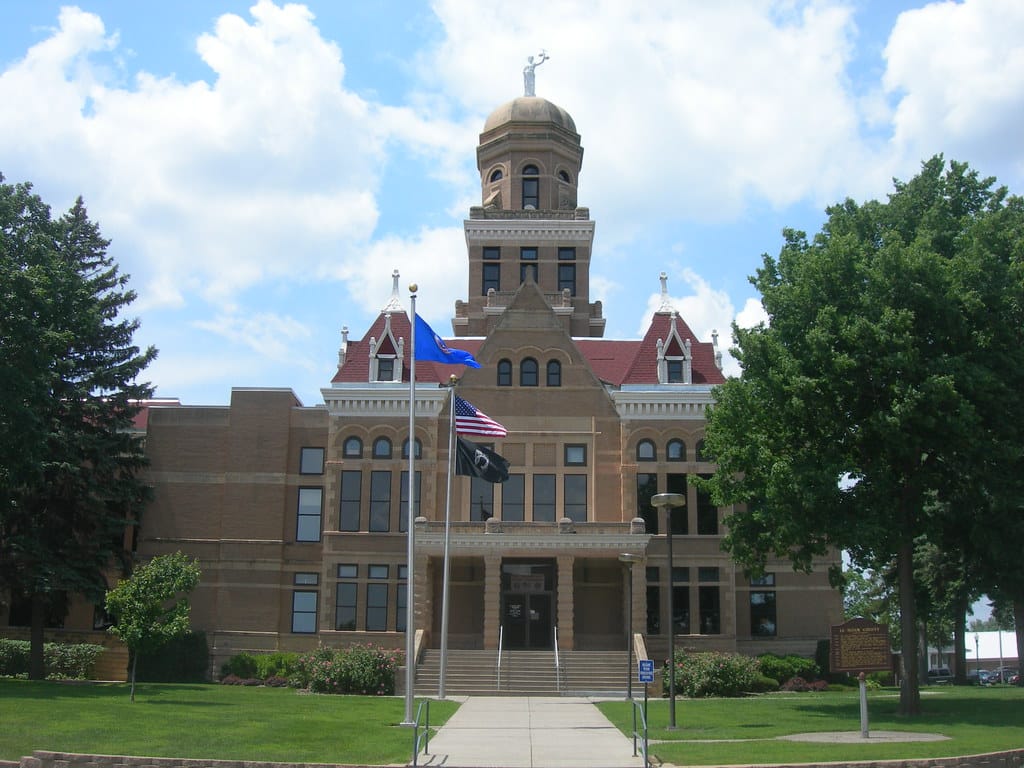
WASHINGTON, February 20, 2024 – Le Sueur County, Minnesota, is urging the Federal Communications Commission to adopt a more proactive and regulatory role in the BEAD challenge process, contending the challenge process currently places the burden of proof on local units of government, when it should be on internet service providers.
In comments submitted to the commission on Monday, Le Sueur County officials call for the FCC to provide grants or resources to local government units to hire professional vendors to work on addressing challenges submitted to the FCC’s national broadband map.
This map, which states the availability of broadband internet nationwide, plays a crucial role in determining a location’s eligibility for funding to expand broadband infrastructure under the $42.5 billion federal initiative known as the Broadband Equity Access and Deployment, or BEAD, program.
The FCC’s national broadband map shows that Le Sueur County is almost entirely served with broadband, when county officials estimate nearly 75 percent of the county lacks access to reliable internet.
The sole unit of local government to file comments regarding the FCC’s Broadband Data Collection challenge process, Le Sueur County sheds light on challenges faced by local government units nationwide. The county criticizes the user-unfriendly nature of the current process, citing administrative burdens and a lack of dedicated staff familiar with telecommunication issues.
The FCC’s Broadband Data Task Force was soliciting input from stakeholders involved in the challenge process to garner suggestions to improve the effectiveness of the process, in preparation for a forthcoming report to Congress detailing the need for supplementary tools to detect inaccuracies in the broadband data collection process.
The task force sought input on stakeholders’ involvement in the challenge processes, their suggestions for improving usability, and the effectiveness of the challenge process in enhancing broadband data quality and accuracy.
Among other recommendations, Le Sueur county officials propose allowing government units to submit general locational challenges against providers without necessitating specific site data. They propose that the FCC collaborate with contracted vendors to authenticate these challenges.
In states where the BEAD challenge processes have concluded, a common reason for rejecting local governments’ challenges to the mapping fabric was the lack of location-specific evidence showcasing the availability of qualified service.
Insufficient funding and a shortage of staff resources have rendered it increasingly difficult to involve local governments in the BEAD challenge process and guarantee the submission of accurate information required to approve their challenges. This sentiment was echoed by state broadband officers at a recent Broadband Breakfast Live Online event.
The county strongly recommends a reevaluation of the methodology and requirements for provider reporting, advocating for a more conservative approach to prevent potential overreporting and minimize the need for challenges. Additionally, Le Sueur County encourages the FCC to increase audits and enforce penalties against ISPs who submit overstated coverage information. It also calls for the FCC to independently verify each challenge submission before acceptance.
“Our county’s greatest concern is that it will not be eligible for BEAD funds due to inaccurate and overreporting on the FCC map by certain fixed wireless providers, both licensed and unlicensed,” said Joe Martin, the county administrator of Le Sueur County, in comments on behalf of the county.
“In looking at our known fixed wireless assets in the county, we know the technology has a 7-mile line of site service availability, but in viewing the coverage maps you will see coverage reported well beyond the 7-mile radius,” Martin states.
Le Sueur County officials also request the FCC exercise due diligence in requesting information from fiber providers to identify the fiber capacity of all existing fiber lines. For fiber that is identified as not suitable for additional access, or for those lines the FCC receives no formal response from the owner, county officials call for those lines to be removed from the map, thus making those areas BEAD-eligible.
The county further recommends that fixed wireless providers be required to publicly disclose all tower locations they are using for service, along with power and frequencies being used, saying this would allow for local units of government, along with the FCC to verify that the service claimed on the national broadband map is actually available.
“We understand there is an established challenge process to address this issue, but to ask local units of government and private citizens to go through this arduous process is an unrealistic expectation,” Martin remarks.
Alongside the remarks from Le Sueur County, three internet service providers submitted comments to the docket regarding specific data confidentiality requests.
The fact that Le Sueur was the only public institution to provide comments underscores the strain experienced by local governments throughout this process.
The FCC is striving to correct its national broadband coverage map, which has long been recognized to contain inaccuracies in broadband coverage data, as the data has traditionally been self-reported by ISPs. This effort is in preparation for distributing $42.5 billion to expand broadband access in underserved and unserved areas.
